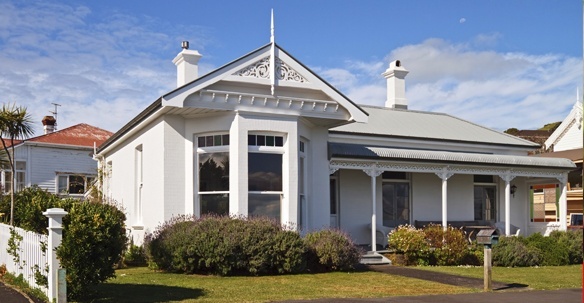It’s no secret New Zealand is one of the most desirable places to live and settle. When it comes to finding a new home, the choices are plentiful, the paperwork is easy and the investment potential is strong. Whatever part of the country you choose, our houses reflect our lifestyle: easy, open, and relaxed.
Here are some tips on finding yourself the best place to live in New Zealand…
Where to live
Cityscape or mountain range? Whatever view you want to wake up to, we’ll have it. Check out our guide to the various regions in New Zealand.
If you find yourself with options you’re struggling to choose between, take a look at our breakdown of New Zealand’s various districts and what they can offer.
The costs
Head here for a summarised breakdown of median house price across different popular regions.
Property is an investment
For most Kiwis, their home is also their biggest investment. In New Zealand, there’s no capital gains tax on the home you own and live in. With investment properties, provided you own the home for 10 years or more there’s no capital gains tax. Further, anyone can own a home here, regardless of their country of residence. So a house is not just a place to live; it’s an investment in the future.
How to Buy
Know your budget
Talk to your bank and sort out your budget. A lot of houses sell at auction, and you can’t bid if you’re not ready to buy then and there. For most people, that means having a mortgage lined up and ready to go.
Start looking
You probably have some idea of the type of home you want, but looking at places (either on site or online) will also help refine your requirements. If you can, go to auctions to get a feel for prices and values.
Research, research, research
You can’t know too much. If you like a place enough to buy it, hire a registered builder to examine it and supply a formal report detailing the long-term maintenance outlook. If possible, accompany your builder to the site as an extra pair of eyes.
More research
Get a feel for life as a local by exploring parks, finding schools, and studying transport links. Talk to people who know the area, such as neighbours or local shopkeepers. It doesn’t hurt to find out who your future neighbours might be.
Involving a lawyer
You’ll need a solicitor. Here’s a list of all the lawyers registered with the New Zealand Law Society. Fees vary depending on the lawyer and the complexity of the deal, but you might expect legal costs to be somewhere between one and five thousand dollars.
LIM reports
Get hold of the Council file on the property, known as a LIM report (Land Information Memorandum). Read it closely, and then have your lawyer read it. Check that the property reflects the report and that there are no undocumented alterations to the property. Check for any unusual historical events, like flooding (or flood mitigation), earth moving, and so on.
Buying by auction
Auctions are swift and simple; everyone turns up and bids. If the reserve is met, the highest bidder is obliged to purchase unconditionally, so you need to complete all your research before the auction. Sometimes vendors will negotiate conditions such as the settlement period with the winning bidder, but don’t presume that; ask before the auction starts.
Buying by negotiation
If you like a place, you can make an offer. In addition to price, this could include conditions such as the settlement date, a satisfactory builder’s and LIM report, approval of finance and so on. Vendors will usually come back with a counter offer on either the price or the conditions or both.
Paperwork
One of the benefits of purchasing a New Zealand property is that almost all the agents use the same contract templates, which reduces the time (and charges) your lawyer needs to spend on the deal.
Deposits
Most vendors require a deposit (normally a minimum of 10%) which is payable as soon as the offer is accepted. Next, both parties need to meet all the specified conditions. Then, on the agreed date, the offer becomes unconditional. That means both parties are now fully committed to the sale going ahead.
Settlement
On your agreed date, the you (or your lawyer) will make the full and final payment for the property. Once cleared, you can go ahead and pick up the keys to start your big move!
Buying a house is an exciting, but important moment in anyone’s life, which means it shouldn’t be done without plenty of careful consideration. When you have time to dive deeper into the process, head here.

